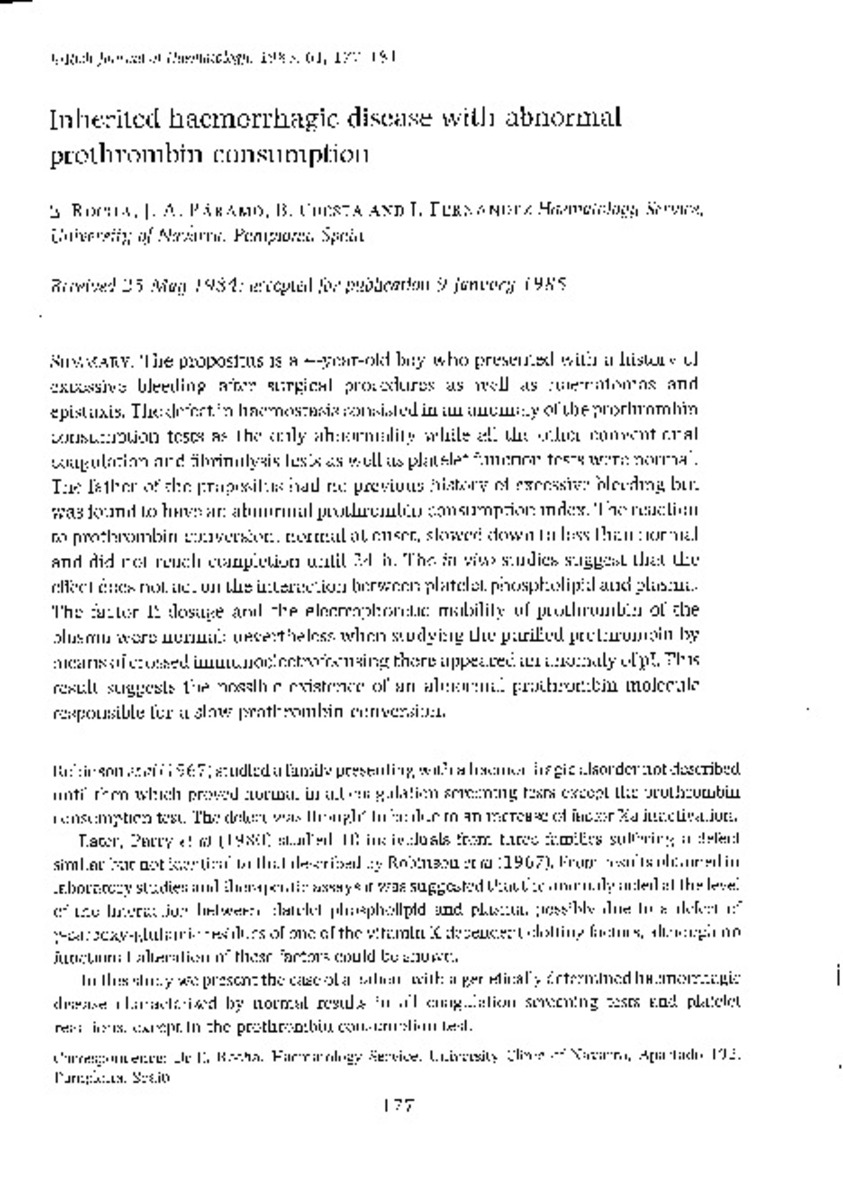Inherited haemorrhagic disease with abnormal prothrombin consumption
Palabras clave :
Blood Coagulation Disorders/genetics
Prothrombin/metabolism
Fecha de publicación :
1985
Editorial :
Blackwell Publishing
Cita:
Rocha E, Paramo JA, Cuesta B, Fernandez J. Inherited haemorrhagic disease with abnormal prothrombin consumption. Br J Haematol 1985 Sep;61(1):177-184.
Aparece en las colecciones:
Estadísticas e impacto
0 citas en

0 citas en

Los ítems de Dadun están protegidos por copyright, con todos los derechos reservados, a menos que se indique lo contrario.







